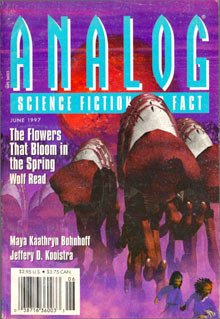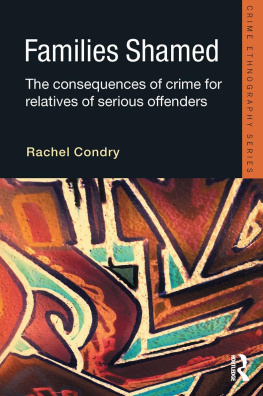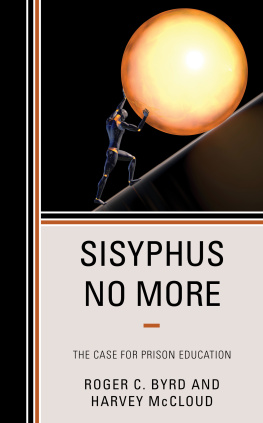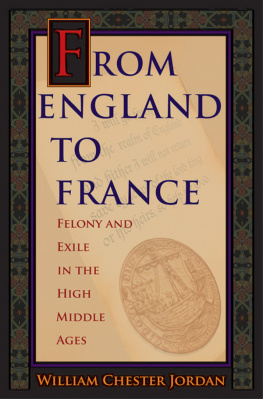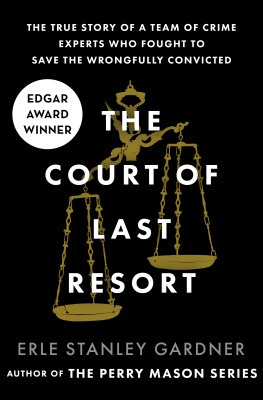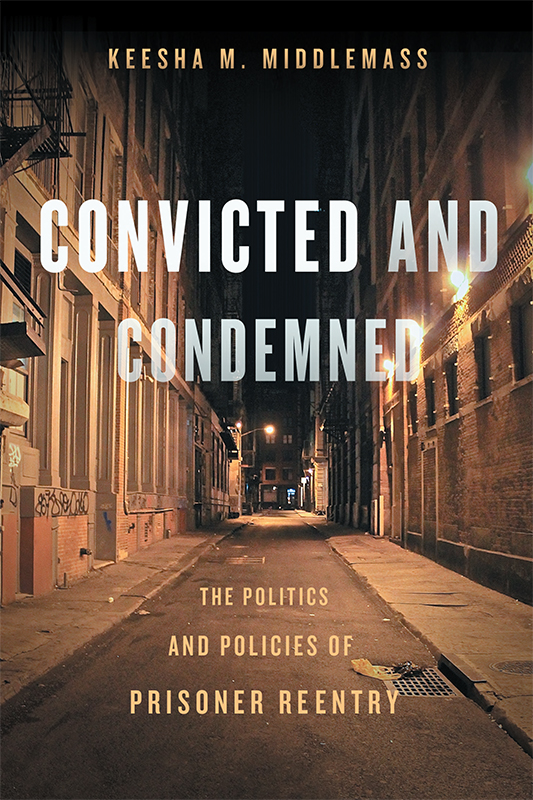
Convicted and Condemned
Convicted and Condemned
The Politics and Policies of Prisoner Reentry
Keesha M. Middlemass

NEW YORK UNIVERSITY PRESS
New York
NEW YORK UNIVERSITY PRESS
New York
www.nyupress.org
2017 by New York University
All rights reserved
References to Internet websites (URLs) were accurate at the time of writing. Neither the author nor New York University Press is responsible for URLs that may have expired or changed since the manuscript was prepared.
ISBN : 978-0-8147-2439-2 (hardback)
ISBN : 978-0-8147-7062-7 (paperback)
For Library of Congress Cataloging-in-Publication data, please contact the Library of Congress.
New York University Press books are printed on acid-free paper, and their binding materials are chosen for strength and durability. We strive to use environmentally responsible suppliers and materials to the greatest extent possible in publishing our books.
Manufactured in the United States of America
10 9 8 7 6 5 4 3 2 1
Also available as an ebook
Dedicated to Zook
He was a word artist extraordinaire, trusted keeper of keys, and my friend.
Contents
First and foremost, I am profoundly thankful to the men and women who were willing to share so much of their private lives with me, including their personal successes and struggles. I think about each of them often, and wish them all well. Participants lived experiences unfolded over quiet conversations and amusing exchanges, and I deeply appreciate their candor and am indebted to them for revealing what it means to be a modern-day felon, how government and public policies undermine their reentry efforts, and what it means to live on the periphery of society. This book is the participants collective story: Their narratives shape the trajectory of this research in immeasurable ways to offer a distinct viewpoint about what it means to live as a convicted felon. I am grateful for the opportunity to be their narrator and hope that each participant recognizes his or her voice in the text and that my efforts live up to their expectations. Many participated with the goal of helping others: I want them out there to know that just because we did bad dont mean we cant do good.
I owe a special debt of thanks to three organizations: the Andrew W. Mellon Foundation, the Vera Institute of Justice, and The Ohio State Universitys inaugural Crime and Justice Summer Research Institute: Broadening Perspectives & Participation. I am beholden to the Mellon Foundation for its financial support, which afforded me the time to write, think, and conduct preliminary research for this project while at the Vera Institute of Justice. Special thanks to Chris Stone and Michael Jacobson for supporting the Postdoctoral Fellowship on Race, Crime, and Justice, which provided the space for intellectual discourse and investigative research at the intersection of race, policy, crime, politics, and prisoner reentry. My residency in New York City set the stage to broaden my examination of prisoner reentry and the socially disabling effects of a felony conviction. The Summer Research Institute at The Ohio State University was a boot camp for academics, offering invaluable interactions with junior and senior scholars, as well as experts in the field of sociology, race, punishment, and criminal justice. Special thanks to Professors Ruth D. Peterson and Lauren J. Krivo for their leadership and professional guidance, and to Professor Emeritus Paul Beck, who shared his knowledge and research insights with me.
I am very appreciative for the steadfast support of friends, colleagues, and contemporary outlaws alike, who offered encouraging words, extended themselves in big and small ways, and communicated a continual belief in my aim of raising the level of social consciousness about the project of a felony conviction. I extend a special thank you to Professor Paul Boxer; I have benefited immensely from our friendship and our conversations about social justice, punishment, and reentry. I am indebted to Warren Thompson for facilitating my access into the world of prisoner reentry, alongside Jerome, David, Priscilla, and Roxanne, who collectively shared their shrewd intelligence about reentry and how a felony constrains people. I am grateful for my friend, mentor, and colleague, the late Professor Manning Marable; he believed in my ideas before they were fully developed, and I will be forever thankful for his confidence in my ability to write a contextualized narrative using first-person accounts of what it means to navigate the social landscape as a felon.
Writing a book requires one to move words across the page, which is a uniquely solitary endeavor that takes form in the company of others; I had ongoing and beneficial conversations with my friends, Professors CalvinJohn Smiley and Keith Reeves. I appreciate my friends, colleagues, and fellow scholars, Professors Wendy Smooth, Julia Jordan-Zachary, DAndra Orey, Khalil Muhammad, Taja-Nia Henderson, Carla Shedd, Michael Leo Owens, Pearl Ford Dowe, Lisa L. Miller, Zaire Dinzey-Flores, Osagyefo Sekou, and Adolphus Belk, and extend a big thank you to my friends Professors Rosa Aloisi, Sarah Martin, and SarahBeth Kaufman for their encouragement. I appreciate the assistance of student workers Alyssa Alfaro and Susan E. Clark and am grateful for the early support from Professors Leith Mullings, Premilla Nadasen, Cheryl Mwaria, Dana-Ain Davis, Aimee Cox, and Robyn Spencer. Last but not least, I want to extend a special thank you to Professors Charles Menifield, Fredrick Harris, and Jyl Josephson, who each provided indispensable backing and assistance at a critical time in my career.
Thanks to a fabulous circle of friends and family, I lived a semi-balanced life. The engaging diversions included culinary adventures with Crystal Izquierdo and Kim Owens; dinner parties with organic vegetables and distilled spirits with the late Craig Zook Davis, Tarmaine Superman Hall, Johanna Gonzalez, Self Rayford, and Sonia Burnett; time with my sista-friends Nicole Barcliff, Noelle Lusane, Janet Draper West, Iman Hypolite, and Javiela Evangelista; and trips home to visit my parents, Bob and Marilyn Middlemass, my brothers, Dean and Mike, sister-in-law, Jill, nieces, Lauren and Ally, the Adamses, the Jungs, my friend Jenny Dolden, and the Gibson clan.
While writing this book, I read a wide range of texts and had conversations with intellectually curious people in random Brooklyn cafs, restaurants, and international airports: Conversations concerned corruption in Machiavellis Prince; punishment and love in The Prophets (A. Heschel); and great works examining obscure mysteries found in ancient texts and secret societies hiding in plain sight. Some of the best conversations swirled around The Art of War (Sun Tzu); in an abstract sense, the metaphor of war is an accurate representation of what tough on crime politics and policies feel like in real life: Participants described prison as a form of combat, reentry as an ongoing battle, and a felony conviction as a never-ending fight against an inhospitable society. War is also theoretically apt when writing a book, as it is descriptive of the struggle over opposing values and tenets. Every socially conscious author struggles over word choice and wrestles with ideologically biased words and politically laden text to communicate socially fraught issues because words matter. It takes care to convey the experiences of others and to stay true to participants voices while transmitting participants authentic lived experiences; therefore, I use their language to describe the world they occupy.
Next page

